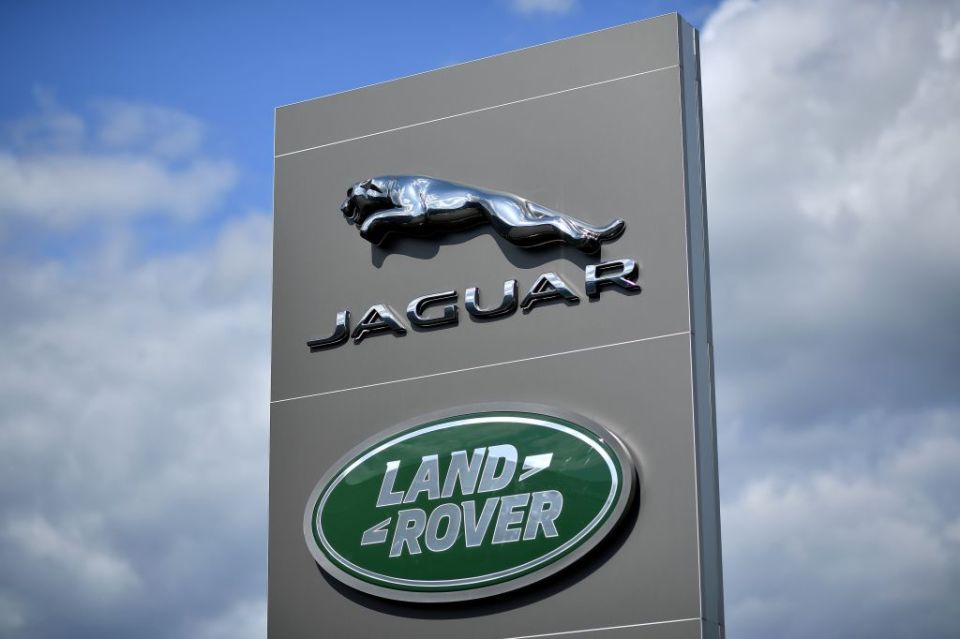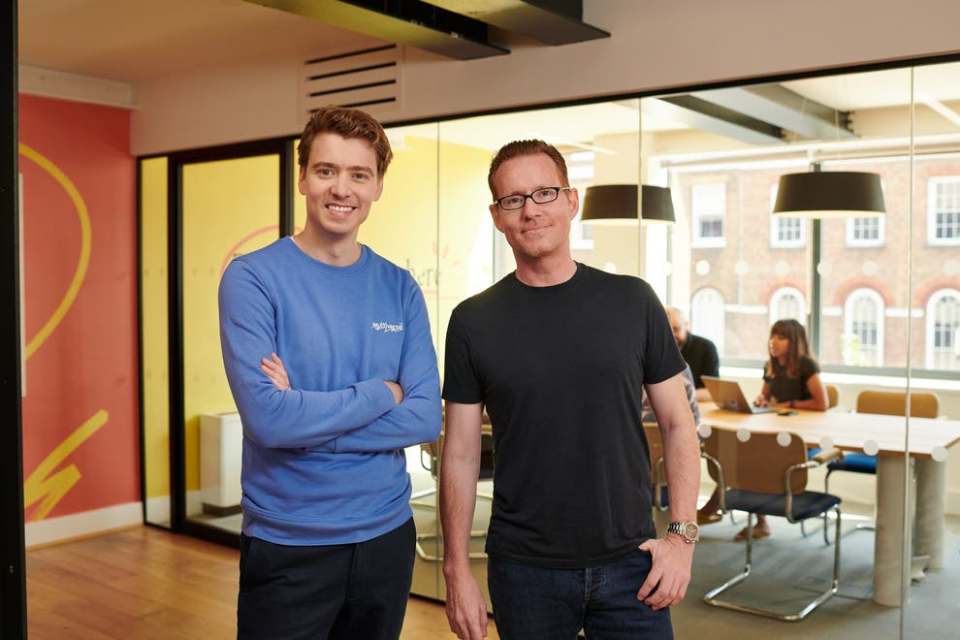Euan Blair interview: Is Multiverse’s educational mission a reality?

Former staff say Euan Blair has abandoned Multiverse’s original mission to widen access to top jobs. He says the business is just growing and evolving.
When Euan Blair collected his MBE last year for services to education, he put out a statement.
“It’s a real honour to receive this recognition,” the founder of education ‘unicorn’ Multiverse wrote, “but it’s on behalf of an organisation full of people who are working tirelessly to build a truly outstanding alternative to university.
“Multiverse’s growth is testament to the power of apprenticeships to widen access to top jobs and give employers the skilled talent they need.”
Blair, the son of the former prime minister who famously campaigned on widening access to university, had won plaudits for doing the exact opposite. And he’d earned a gong for it some 30 years faster than his dad.
But for some former employees, the reference to “alternative to university” grated. In their view, Blair wasn’t really telling the full story.
City A.M. revealed last month that Multiverse has in fact decimated its so-called early talent team, which focuses on getting school leavers into work without the need for a degree.
Just 20 per cent of the company’s revenues are made through early talent while the vast majority of its business is focused on the altogether less sexy world of ‘upskilling’ – retraining employees already working at big corporates and public sector organisations.
Nearly half of those going through its upskilling programmes in fact already have degrees, according to the firm.
Alongside that has been the rise of a “cut throat” culture of “fear”, former employees allege, as staff are brutally managed out by unrealistic performance plans in the company’s pursuit of profit.
When City A.M. approached Multiverse for a second time with calls from former staff to “stop pretending to be something you’re not”, Blair invited us to the company’s Paddington HQ to respond to the questions directly.
Polished exterior
Blair cuts a warm and engaging figure wandering round the firm’s trendy Wework office. He stops and speaks with four staff on the way to a meeting room, addresses them by name, chats with a new joiner about her background. He even compliments my glasses.
But a number of ex-staff say it’s a show. Behind the polished exterior, they say, is a ruthless business leader who runs a company that will “drop you like a fly”.
He argues that like the leader of any high growth business, he simply demands high standards from his staff.
“We’re clear with people it has to be high performance and high standards. And that’s really important,” he says.
“The fact is not everyone can perform at the level that we need them to. But they should never be doing that in an environment where their work is made more difficult by cultural issues.”
A cut throat culture might generously be put down to growing pains. Multiverse has expanded rapidly in both headcount and revenue over the past seven years. Founded in 2016 as Whitehat, the firm last year fetched a £1.4bn valuation as it filled its coffers to take on the US. Its headcount has now swelled to over 800 people.
That has also come at a time when its clients have slashed hiring and cut costs. Firms are now far more reluctant to take on waves of new apprentices they need to train up from scratch.
Hiring for tech roles, where Blair’s company had previously made a lot of its money, is down some 40 per cent, according to a new report from Ravio. And as a result, Multiverse has been forced into a rather large change of direction.
The upskilling programmes introduced in its third year are now dominant, and many of the gripes of former employees point to a disillusionment over that shift in focus.
“I actually left because I didn’t really feel like the mission that we were selling – to create a diverse group of future leaders – was what we were doing,” one former staff member told City A.M.
Some say they joined Multiverse thinking they were joining a push to get underprivileged people into work. What they found was a more run of the mill upskilling business.
But Blair insists he has always been clear about the company’s broad educational offering. The media, he argues, have just latched onto one aspect of his firm.
“I talk about this all the time – this is bigger than just young people at the start of their careers. I’ve been quoted on that before.
“The challenge is, I think it’s probably easier conceptually for some people to understand or something that’s just been written in the newspaper [that says]: ‘people at the start of their careers without a 2:1 degree from a Russell Group university’”.
For Blair, moving beyond just school leavers has been a natural part of growth. Companies liked Multiverse’s educational programmes and wanted to use it to retrain and upskill their existing workforce, rather than just bringing in new talent.
“Increasingly as employers said ‘Hey, this is good. How can we do more of this? Can we reach people within our workforce?’, we’ve started to deliver far, far more [programmes] to people who are in the workforce,” he says. “[People] who are looking to reskill and upskill, looking for career mobility.”

Multiverse now counts clients like Jaguar Land Rover and the NHS among its roster, and the shift to upskilling appears to be paying off in some respects.
Alongside its ‘unicorn’ valuation, Multiverse grew revenues in the year to March by some 66 per cent to £45.2m over the past year, according to accounts seen exclusively by City A.M. today.
Its cash holdings have ballooned to £188m, but alongside that is the more troubling picture of losses, which nearly tripled to £40.5m from £14.2m after a major growth push into the US.
Striking the balance
The problem now facing Blair appears to be balancing a social mission with the demands of hypergrowth.
Externally the firm may appear a socially-focused feel-good operation, but it has the backing of some of Silicon Valley’s biggest investors who demand growth and profit.
“We’re venture capital backed. That’s really hard to do. If you’ve raised VC investment from some of the top VCs in Silicon Valley, they want a return on their investment,” he adds.
He argues he’s never made any effort to “masquerade as a charity or a not for profit”. It’s about getting the balance right, he says, although he would never claim “we’ve got everything right”.

Several staff say the pressure from VCs has corresponded with a drop off in quality however, which Multiverse denies.
Blair acknowledged complaints from client Jaguar Land Rover in an all staff meeting at the beginning of the year, when standards couldn’t keep up with huge demand, according to two former employees.
He insists there’s been no compromise on quality for growth, but scaling up the business has brought challenges.
“The fact is it is much easier to ensure complete and utter consistency as you’re testing things when you’re dealing with 100 apprentices versus 10,000 apprentices,” he adds.
A Jaguar Land Rover spokesperson did not comment directly on the matter but added that “data skills are central to our future success and our partnership with Multiverse remains key to this.”
‘How do I improve productivity?’
When City A.M. spoke with five former staff members of the company, they claimed its social mission of ‘creating a diverse group of future leaders’ had been cast by the wayside in pursuit of the numbers.
But Blair argues, he’s running a business. And while Multiverse operates under the stated mission of ‘creating a diverse group of future leaders’, why its clients keep spending is slightly less altruistic.
“I get to talk to CEOs a lot, both in Britain and the US, and if you ask them what the biggest challenge for them is, it’s ‘how do I improve the productivity of my workforce?’,” says Blair.
Workers are getting less productive as technology relentlessly advances and their skills can’t keep up. In his view, the workforce requires some reprogramming.
As the AI boom looks set to usher in potentially the greatest shift to the workforce since the industrial revolution, Blair’s bet on upskilling looks shrewd.
Goldman Sachs has predicted that a shift in workflows triggered by AI could expose the equivalent of 300 million full-time jobs to automation. In the US, they say some two-thirds of jobs could be vulnerable to some degree.
Multiverse too has been through its own shake-up and restructuring over the past year. While its headcount has grown in aggregate by over 100, it has slashed its ‘early talent’ team among a wider round of layoffs.
It appears many of them may have been victims of the displacement that Blair claims he is battling.
“On the early talent team internally, definitely as the composition of our [client] pool changes, that’s partly a factor, but also we’ve driven much more efficiency and automation,” he adds.
‘Not what Multiverse is all about’
Fundamentally, the criticism facing Blair may point to the troubles that have plagued ‘socially-conscious’ companies since their inception. Ultimately, purpose demands profit, and a social conscience demands survival.
He says the people who spoke to City A.M. preferred “working at a smaller business that was focused on one thing and just wanted to help young people get jobs”.
“There’s absolutely nothing wrong with that, but it’s just not all of what Multiverse is about,” he adds.
He tells me to pass on his number so they can contact him to discuss directly. It doesn’t seem likely.
They say he’s compromised his mission and is flogging a false tale to unwitting clients and investors.
It may be two perspectives of the same business. Fittingly, there may be a number of alternate realities behind Multiverse’s shiny exterior.